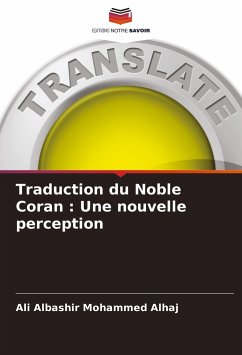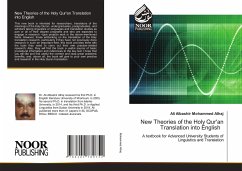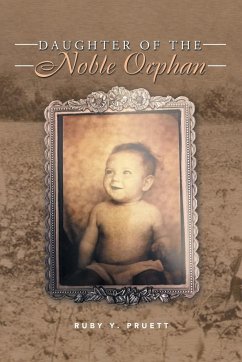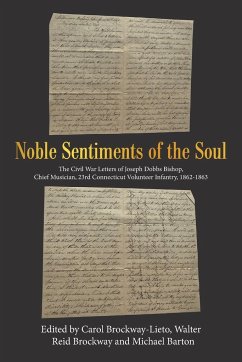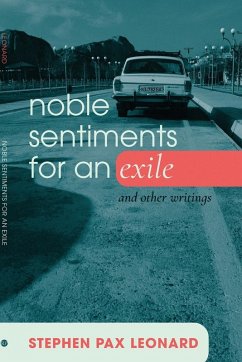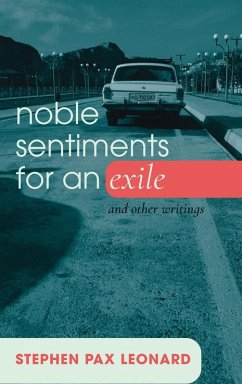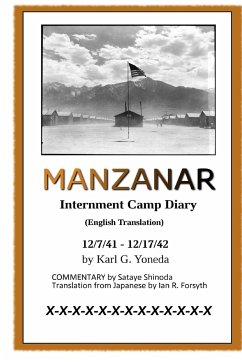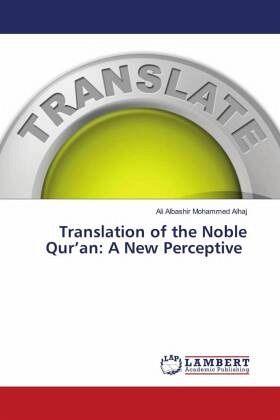
Translation of the Noble Qur'an: A New Perceptive
Versandkostenfrei!
Versandfertig in 6-10 Tagen
29,99 €
inkl. MwSt.

PAYBACK Punkte
15 °P sammeln!
The translations of the Holy Qur'an are usually confined to literal or word-for-word substitution. The translators might not have analyzed both the Source Language (SL) and the Target Language (TL) in their linguistic and non-linguistic contexts: hence, the receptor of the Message is, after all, frustrated and in a state of confusion in comprehending the translated text of the Holy Qur'an. A suitable approach to looking into the problems arising from the extraditions of so many translations of the Holy Qur'an is a hermeneutic approach as this would give us the ability to compare how translator...
The translations of the Holy Qur'an are usually confined to literal or word-for-word substitution. The translators might not have analyzed both the Source Language (SL) and the Target Language (TL) in their linguistic and non-linguistic contexts: hence, the receptor of the Message is, after all, frustrated and in a state of confusion in comprehending the translated text of the Holy Qur'an. A suitable approach to looking into the problems arising from the extraditions of so many translations of the Holy Qur'an is a hermeneutic approach as this would give us the ability to compare how translators use their exegetical tools for comprehension and interpretation be they linguistic, cultural, conceptual, psychological, theological or spiritual. Hermeneutic approaches have been used in translation studies for a very long time.The Qur an has been translated into many languages by Muslim and non-Muslim scholars; there are several translations in many languages including English. However, the translations of the Holy Qur'an into English are an extremely difficult endeavor because each translator must consult his/her opinion and aesthetic sense in trying to replicate shades of meaning.



